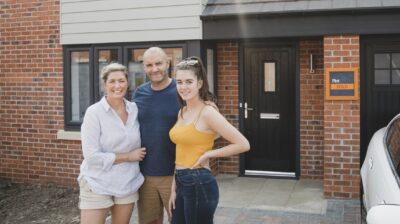How to prepare for leaving care
Leaving care is a big step but there are supports available to help


If you are a young person living in care, once you turn 18 you will have to transition out of the care system. Leaving care can be difficult, and you will need to be aware of the supports available to you as you leave your foster home. For some people, they may feel that they are ready to leave care, but if you do not feel this way or are worried about your future this is completely understandable.
Although you are technically an adult at 18, this is still a young age and a time when you are still learning and developing as a young adult. It is rare that many 18-year-olds would move out and live by themselves, so if you are feeling overwhelmed by this prospect, that is completely understandable. It is important to remember that when you leave care there will be support available to you. Becoming aware of who and what organisations can help you before you turn 18, can help to make your transition from care easier.
How to prepare for leaving care
Aftercare in Ireland
Aftercare is the support and services for young people who were in care, provided after they reach 18 years of age. Aftercare services build on the work of foster carers, social workers and residential workers in preparing young people for adulthood.
Aftercare includes advice, guidance and practical support. Aftercare preparation should begin before you turn 18 and can begin as early as 16 years. If you are in care, you should start asking your social worker about preparation for aftercare from the age of 16. Beginning early means you can work out with your social worker what supports you may need once you have left care.
Aftercare services can support care leavers up until the age of 21, or up until the age of 23 if you are in full time education. You can apply for Aftercare at any stage up until you turn 21.
Read our full article on Aftercare to learn more about the criteria for accessing the service.
Aftercare allowance
In 2015, Tusla introduced a Standardised National Aftercare Allowance. This is a regular payment for young people who:
- Have been in care for 12 months on their 16th birthday or
- Have been in care for 12 months in a row before their 18th birthday
The allowance can be up to €300 per week. A young person may also be entitled to grants as a care leaver from Care Leavers Ireland. Check your eligibility for National Aftercare Allowance.
Pathways
Pathways is an Aftercare guide for young people leaving care which has been created by people who have already left care and become independent. This guide is full of detailed sections which explain everything you might need to know about leaving care and finding a place of your own. It shares experiences and stories from both those who have left care and become independent, and professionals who have helped support young people during this time.
Download Pathways as a PDF. Pathways has been published jointly by EPIC, Focus Ireland and Empower Ireland, all of whom work directly with those in care.
Transitional housing
Transitional housing is for people who need time and assistance to prepare for independent living.
As well as providing medium-term accommodation, these schemes generally:
- Help people build their skills and capacity to establish themselves in a home
- Address any issues that the person might have that would make long-term housing unsustainable
Transitional housing is always time-limited and usually ranges from 6 months to 2 years.
Some projects focus on particular groups, such as rough sleepers, single parents, young people leaving State residential care. The services vary from project to project but are directly linked to the needs of residents. They can include individual needs analysis, personal planning and support, court support, outreach, family support, counselling, advocacy, prison community links, education and employment support, and life skills training programmes.
These transitional housing projects can only be accessed through referrals from other agencies. Transitional housing is funded through local authorities, the Health Service Executive (HSE) or local organisations, depending on the type of project. Residents pay a weekly charge towards their accommodation.
Speak to your social worker to see if this type of supported living arrangement is something available to you. Your social worker will then be able to refer you to one of these services if you are eligible.
Looking for further advice?
Focus Ireland offer further advice online and over the phone.
- Focus Ireland Dublin: Call 01 881 5900
- Focus Ireland Waterford: Call 051 879 810
- Focus Ireland Limerick: Call 086 0354513
- Focus Ireland Kilkenny: Call 056 779 4565
- Focus Ireland Cork: Call 021 427 3646
- Focus Ireland Sligo: 071 914 9974
Need more information, advice or guidance?
We offer information, advice and guidance about the issues that matter to you. Our online Youth Information Chat service is for 16 to 25 year olds and is available Monday to Friday, 4pm to 8pm (excluding Bank Holidays).






